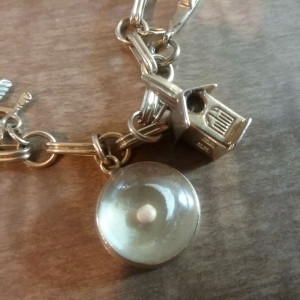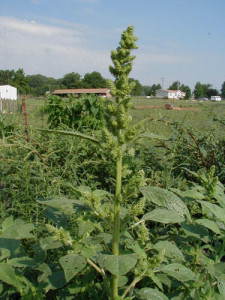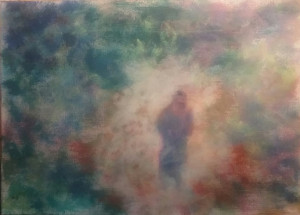“Be Not Afraid”
Cass Poulos
Bradford Congregational Church
August 13, 2017
Genesis 37:1-4,12-28
Psalm 105:1-6,16-22,45b
Romans 10:5-15
Matthew 14:22-33
Please pause with me for a moment of prayer:
Merciful God may the words of my mouth and the meditations of our hearts together be acceptable in your sight. You are our strength and redeemer. Amen
- Prevalence of fear today. Violence, hatred, and supporting rhetoric.
Fear→Stop thinking→ fight/flight, reptile brain
- Faith & Fear Cannot Co-exist Commonly expressed
- Christ theologians understood faith & trust to be synonymous→ either word could be used to express the same thing
- Faith: Noun➔Requires not action→ an intellectual agreement with a set of tenets/rules of faith or dogma
- Trust: Verb➔ requires action, follow through on faith
- Trust requires belief
- Belief can exist without trust/ without action
- Fear: Greatest potential for danger→ stops thoughtful action
- Be Not Afraid
- 1st X in Bible: Gen 3.10→ A & E have eaten of the forbidden fruit, hiding from God because they are afraid
- Addiction & Recovery→ Living Life→ Fear Can Stop Us→ Hide who we are, our deepest desires➔ fear becomes insurmountable→ grows in power and overwhelms. What was meant to serve as a warning and motivator to action becomes a blockade
- We become isolated from ourselves, others, and God
- Chaos
- Today: Racism, Violence, Threats of nuclear & conventional war,
- Sea in Ancient Times: Represented chaos itself. Chaos is unpredictable, dangerous, powerful➔ God only thing that held chaos at bay!
The image of a small boat with a single mast, a typical fishing boat, was an early symbol of Christianity. It represented the church as a refuge from a chaotic world where professing faith in Christ was dangerous. For the first time in Matthew, Jesus and the disciples are separated from each other. The translation from Greek, says Jesus “insists” which implies the disciples did not want to go alone, but they are obedient and “get into the boat and go on ahead to the other side” (Matt 14.22). Jesus then dismisses the crowds and he “went up the mountain by himself to pray” (Matt. 14.23). We learn the boat is “battered by the waves” and “the wind was against them” (Matt. 14.24). In Greek, the boat was “being tortured” by the waves. The sea and wind stand as a barrier between Jesus and the small vessel bearing the disciples. Remember the first boat story (8.23-27) (explain)…the second one is different: Jesus is not with the disciples; there is not a storm; and the disciples are not afraid of the wind. Indeed, the disciples are far from the land which means they are physically far from Jesus. They only become terrified when they see an apparition walking across the sea and coming towards them. Jesus comes to them in the latest and darkest part of the night. Even though there is only one thing which overcomes chaos, that can walk on water, from the disciples’ viewpoint, the apparition could be chaos itself. The disciples are rightly afraid. In terror, they cry out, “It is a ghost!” and then, they just cried out. (14.26). But it is Jesus and he says, “take heart, it is I; do not be afraid.” So here we have further proof that Jesus is Divine. Jesus identifies himself with it is I which correlates with God’s I Am statements. Five times in Matthew, Jesus says, “Do not be afraid” and three times, Jesus says, “Take heart.”
Peter represents all of us. He calls out and addresses Jesus as “Lord.” The title Lord recognizes Jesus as Divine and in Matthew, Lord is only used by followers, believers in Christ. Peter displays a great deal of personal faith. But then he asks Jesus, “if it is you, command me to come to you on the water” (14.28). In other words, prove to me who you are by doing certain things. In the beginning of Matthew, Satan challenges Jesus twice; prior to crucifixion, he is challenged by the high priest and during crucifixion, he is challenged and mocked. On each of these occasions, Jesus is asked to prove his identity. But this is the only time that Jesus agrees to meet the challenge.
And Peter climbs out of the safety of the boat and steps onto chaos. It is not until he takes his focus off Jesus, until he notices a strong wind and becomes frightened that he begins to sink. And he cried out, “Lord, save me!” (Matt 14.30). Immediately, Jesus “reached out his hand and caught him…” and then Jesus asks, “You of little faith, why did you doubt?” (Matt 14.31-2). When they get into the boat, the wind ceases. For the first time in Matthew, the disciples who are in the boat worship Jesus and call him the Son of God.
Frederick Buechner said, “faith is disorderly…intermittent [and] full of surprises.” Now we can ask why someone like Peter could have enough faith and trust to address Jesus as Lord and fearlessly step out of the comfort of the boat and yet challenges Jesus and then takes his eyes off him. He sees the wind and is fearful and begins to sink. Faithfully, he calls upon Jesus as Lord, and is saved. And the rebuke Jesus gives Peter is mild. Perhaps, rather than judging Peter for his shortcomings and his fearfulness, we should focus on his fearlessness.
The image of the boat as the church, a refuge from chaos is always apropos. We all experience chaos. Maybe we have financial fears. Maybe we or someone we love received an unwanted diagnosis. Maybe there is so much pressure we cannot even name it.
We have the image of the boat as the church floating on chaos. It is easy to say nothing, to sit within the confines of the church and never risk because we are afraid. It is too easy to ignore the clamoring of want and need outside our doors. It is too easy to remain disconnected from others because of fear. We are fearful of people with a different skin color, folks who immigrate, and people who are destitute. We may throw money towards “social problems.” But the Gospel calls upon us to be open hearted, to be risk takers for the sake of Christ. We are called upon to risk finding out that we are worthy, that Jesus reaches out to us in the darkest and deepest part of the night. To be connected with another means that we risk vulnerability, that someone will see us for whom we really are. And maybe if they know, they will reject us or not meet our expectations. But to be faithful, to be sloppy and “disorderly in our intermittent faith” means we are open to the possibilities of Jesus reaching out and the possibility that we are loved exactly as we are.
Speak out against violence. Reach out to those who are different. Reach out to those who are fearful. Tell someone what God is doing for you today, what God does for you each and every day. How does faith and trust make a difference in your life.
Faith and trust are never complete. Rather they wax and wane and come back again stronger than before. I do not remember the amount of times God says, Be Not Afraid, but I do know God said it because humans experience fear. It is appropriate in dangerous situations. If it keeps us enslaved and stuck then it is time to jettison some of it… enough to take a step outside the boat and trust that when we begin to sink and we will, that Jesus will meet us with an outstretched hand.
Amen.




